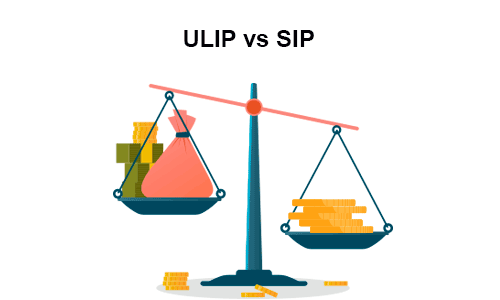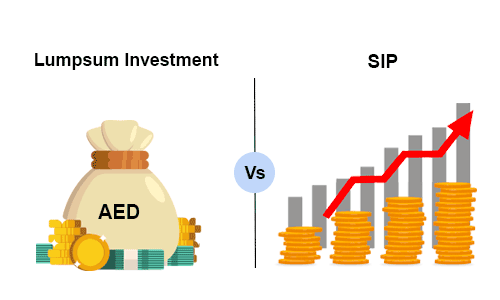What is the Difference Between SIP and SWP?
When it comes to mutual fund investments, two popular strategies often come up: Systematic Investment Plan (SIP) and Systematic Withdrawal Plan (SWP). While both methods involve systematic transactions, their purpose differs significantly.
SIPs allow you to regularly invest a fixed amount into a mutual fund. It’s ideal for those looking to accumulate wealth for long-term goals. On the other hand, SWPs let you regularly withdraw a fixed amount from your mutual fund.
Let’s understand the key differences between SIP and SWP and find out which strategy best aligns with your financial objectives.
Compare & Invest in Best Investment Plans in UAE -
Some of the best Investment quotes in UAE & Dubai are:





What is a Systematic Investment Plan (SIP)?
A Systematic Investment Plan (SIP) is a structured approach to investing in mutual funds. Here, you commit to investing a fixed amount at regular intervals, typically monthly or quarterly.
This method makes it quite straightforward to build wealth over time, especially as a beginner — you don't have to time the market or make large lump-sum investments. By investing smaller amounts consistently, you can benefit from compounding and cost averaging.
Note: SIPs are accessible to most of us, with minimum investment amounts starting as low as Rs. 500 (AED 21.3).
How SIP Works
- Fixed Contributions: You invest a fixed amount regularly in mutual funds
- Consistent Market Participation: Benefit from regular investment, reducing the impact of market volatility
- Rupee Cost Averaging: The fund buys more units when the market is low and fewer when it's high, lowering the average cost of investment
- Compounding: Reinvest returns to generate additional wealth over time
- Flexibility: Adjust contribution amounts based on financial goals and circumstances
SIP Calculator
What is a Systematic Withdrawal Plan (SWP)?
You can take a set amount out of your mutual fund investments at regular periods using the Systematic Withdrawal Plan (SWP) method. This strategy is especially useful for those who have already accumulated wealth and want to convert their investments into a steady income stream.
SWPs are ideal for retirees or those seeking reliable cash flow as they allow withdrawals without the need to time the market. With an SWP, you can choose the amount and frequency of withdrawals. This ensures that you meet your regular financial needs while still benefiting from the growth of your remaining investments.
How SWP Work
- Fixed Withdrawals: You withdraw a fixed amount regularly from mutual fund investments
- Flexible Amount & Frequency: Choose withdrawal amounts and frequency as per financial needs
- Capital Gain Management: Withdraw from returns rather than the principal, optimising taxes (applicable in India)
- Income Generation: Ideal for investors like retirees seeking steady income
- Continued Growth: The remaining investment continues to grow while providing regular income
- Ease of Management: Easy online tracking and adjustments to withdrawal plans
- Market Volatility Mitigation: Fixed withdrawals help cushion against market fluctuations
Key Differences Between SIP and SWP
SIP and SWP are both systematic approaches to mutual fund management, but they serve different purposes. Here is a comparison of the key differences —
| Parameter | SIP | SWP |
|---|---|---|
| Purpose | Regular investments in mutual funds | Regular withdrawals from mutual funds |
| Goal | Wealth accumulation over time | Income generation from existing investments |
| Suitability | For long-term investors seeking growth | For those needing steady income (e.g., retirees) |
| Cash Flow Movement | Money is debited to buy units | Units are sold to provide withdrawals |
| Taxation | Taxed on capital gains upon redemption | Taxed based on the holding period and fund type |
| Flexibility | Contributions can be modified or stopped | Withdrawal amounts and frequency can be adjusted |
In short, SIP is a strategy to build wealth for future goals, while SWP focuses on converting your investments into a reliable income stream.
SIP or SWP: Which is Better?
If you're in the early stages of building wealth, you can focus more on SIPs. This can let you enjoy compounding benefits for decades, potentially resulting in wealth generation over time.
As you approach retirement or need a steady cash flow, transitioning to SWP is a wise choice. In your golden years, you can get a regular income stream through these funds.
Ultimately, both strategies can complement each other over different phases of life — SIPs can grow your wealth while SWPs can provide financial stability through regular withdrawals.
The right approach depends on your financial goals — you can use SIP for growth and SWP for income later.
Frequently Asked Questions
1. Can I convert my SIP to SWP?
No, you cannot convert your SIP to SWP in most cases. These are two different types of investments and have a separate opening process.
2. What are the disadvantages of SWP?
While SWPs are ideal for regular returns, they come with some disadvantages such as market risk, potential capital depletion if withdrawals exceed returns, tax implications, and possible exit loads that can reduce overall returns.
3. Is SWP better than SIP?
The choice depends on your financial goals and needs. SWP is more suitable for people looking for steady income, whereas SIP is ideal for gradually increasing wealth through consistent investments.

More From Investment
- Recents Articles
- Popular Articles






.jpg)











.jpg)

















